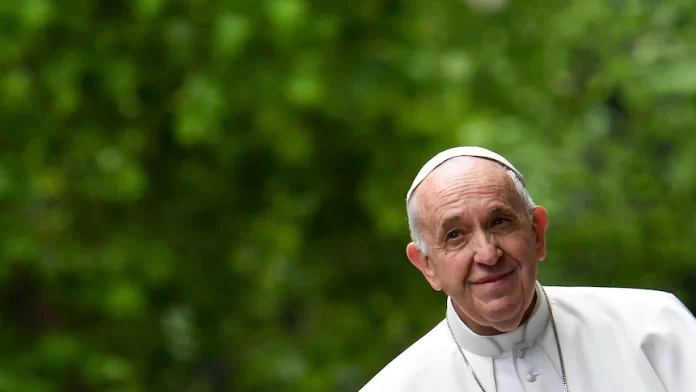Pope Francis urged the participants in the meeting promoted by the Pontifical Academies of Sciences and Social Sciences on the topic “From the climate crisis to climate resilience.”
The Holy Father has once again the threat that climate change poses to humanity during the audience.
During his extensive and severe speech, the Holy Father stressed that the poorest, “who have very little to do with polluting emissions,” will have to receive more support and protection.
The Pontiff then addressed those present with the following question: “Are we working for a culture of life or a culture of death?”
Later, he assured that today “we face different but interconnected systemic challenges: climate change, loss of biodiversity, environmental degradation, global inequalities, food insecurity and a threat to the dignity of the affected populations.”
“If not addressed collectively and urgently, he warned, these problems pose existential threats to humanity, other living beings and ecosystems.”
The Holy Father insisted again that the poor of the earth “are the ones who suffer the most despite being the ones who contribute the least to the problem.”
He specified that the 3 billion poorest people contribute less than 10%, but bear 75% of the resulting losses. For its part, it reported that the 46 least developed countries – mostly African – represent only 1% of global CO2 emissions. In contrast, G20 nations are responsible for 80% of these emissions.
These figures show, according to Pope Francis, “the tragic reality that women and children bear a disproportionate burden.”
“Women do not usually have the same access to resources as men, and caring for the home and children can hinder their ability to emigrate in the event of a disaster,” she said.
However, she pointed out that “women are not only victims of climate change: they are also powerful agents of resilience and adaptation.”
Regarding children, I have stated that “nearly a billion of them reside in countries that face an extremely high risk of climate-related devastation. Their age of development makes them more susceptible to the effects, both physical and psychological, of climate change.”
“The refusal to act quickly to protect the most vulnerable exposed to human-caused climate change is a serious failure,” he asserted.
He went on to lament that progress “is hampered by the voracious pursuit of short-term profits by polluting industries and by misinformation, which creates confusion and hampers collective efforts to reverse course.”
Along these lines, I have stated that “the path is difficult and full of dangers” and reiterated that “the threats to public health and well-being” are also alarming.
“We are witnessing the dissolution of communities and the forced displacement of families,” he highlighted, while expressing that “air pollution prematurely claims millions of lives each year.”
“Defending the dignity and rights of climate migrants is to affirm the sacredness of all human life and honor the divine mandate to guard and protect the common home,” he continued.
Faced with this “planetary crisis”, the Holy Father proposed different solutions: “we need a universal approach and rapid and decisive action to achieve changes and political decisions.”
Secondly, I have assured that “we need to invert the warming curve, trying to halve the rate of warming in the short space of a quarter of a century.”
At the same time, “we must aspire to global decarbonization, eliminating dependence on fossil fuels.”
“Third, large amounts of carbon dioxide must be removed from the atmosphere through environmental management that spans several generations.” And in
According to the Pontiff, “the climate crisis requires a symphony of global cooperation and solidarity. “Through emissions reduction, lifestyle education, innovative financing and the use of proven nature-based solutions, we strengthen resilience, particularly drought resilience.”
Likewise, I have assured that restructuring debt and relief, “along with the development of a new global financial charter by 2025, which recognizes a kind of ‘ecological debt’, can be a valuable help to mitigate climate change.”
“We must act with urgency, compassion and determination because the stakes could not be higher,” Pope Francis concluded.



